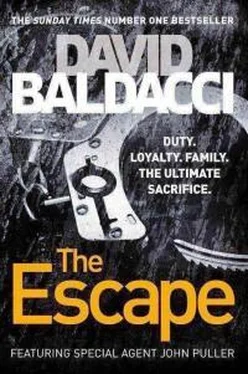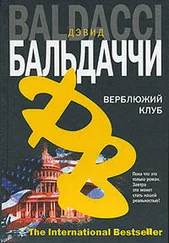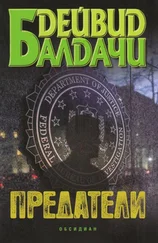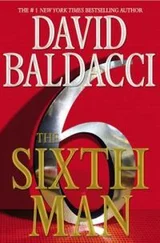“That still doesn’t mean it’s fair. But who wants to rock that boat?”
Kirk spread her hands. “I’m not saying it’s an ideal system, but it’s the one we have. And it works for the most part.”
“I don’t think it worked for my brother.”
Kirk sipped her coffee and shot glances around the diner, while Puller stared moodily off and Knox glanced back and forth between the two.
Their food came a few minutes later and they waited for the waitress to leave before resuming the conversation.
“I’m going to eat and talk,” said Kirk. “Pardon the open mouth full of food.” After liberally salting everything on her plate while Knox looked on in disapproval, Kirk said, “There are no hung juries like in civilian courts. You need a three-quarters agreement among the panel for a sentence of ten years or more, and the panel, not the judge, also decides the sentence.”
“But I understand that unanimity by the panel is required for the death penalty,” said Puller.
“Not always. If he was convicted under Article 106 of spying, then the penalty decision is taken away from the panel. Spying carries a mandatory death sentence. There are no exceptions if the conditions are met. The judge will simply announce the sentence.”
Puller sat back. “I wasn’t aware of that. What are the conditions?”
“Pretty simple and straightforward. The genesis of the language actually dates back to colonial times, although it’s been modified from time to time over the years. It has to be during a time of war, which we certainly were when he was arrested.”
“But Congress never officially declared war on Afghanistan or Iraq,” Puller pointed out.
“You’d make a good lawyer, Puller. And the defense argued that point. But while technically what you say is true, practically, we were at war. And your brother was accused of aiding our enemies. When dealing with something like that, the defense is going to lose more often than it wins. And that’s what happened when your brother’s lawyer argued that point. He lost.”
“Okay, go on,” said Puller.
“The accused has to be acting as a spy in a place within the jurisdiction and control of the armed forces or any other place engaged in work in aid of that war. There are other elements: acting clandestinely, attempting to collect certain information with intent to convey to the enemy, etcetera, etcetera.”
“But was he charged under Article 106?” asked Knox. She quickly added, “But I guess he couldn’t have been. He was convicted but he wasn’t sentenced to death.”
Kirk said, “It seems Article 106 was originally on the table, but then it was taken off. He was instead convicted under Article 106a of espionage. It’s sort of splitting hairs, because it carries many of the underlying requirements of spying although there is no requirement that it be during time of war. It also carries a capital penalty when the crime involves certain elements like nuclear weaponry, satellites, and communications intelligence.”
“All things my brother was involved in,” said Puller slowly.
“Right, but as opposed to a conviction of spying, the death penalty is not mandatory. It’s also subject to whatever other punishment the court-martial wants to direct. And as you said, that’s when all panel members must vote unanimously to impose death. That’s a big difference from an automatic capital sentence.”
“And they didn’t have unanimity?” said Puller.
“No. Otherwise he’d be on death row or actually dead. Instead he was given life.”
“So there must have been some extenuating circumstances,” said Knox.
“I suppose there were, yes, but the whole picture was a little fuzzy from a trial perspective.”
“Surely you didn’t get that from just a paper trail, Shireen?” asked Knox.
Kirk swung her gaze to Knox. “My first name isn’t Shireen, it’s actually Cambrai. But it might as well be ‘Scorched Earth.’ I dug up the prosecutor and the defense counsel and spoke with both of them. They were surprisingly candid. Surprisingly.”
She let the word hang out there.
“And why do you think they were so cooperative?” asked Puller.
“Well, it’s hard to say,” began Kirk cautiously. “They both remembered the case well, though I’m sure they’ve both handled dozens since. You know there was a PTA but your brother rejected it.”
“What’s a PTA?” asked Knox.
“Pretrial agreement. The accused can provide a guilty plea in exchange for a more lenient sentence. He apparently wanted no part of that. He consistently proclaimed his innocence in the strongest possible terms.”
“Who was the convening authority?” asked Puller.
“The CO at STRATCOM, Major General Martin Able.”
“I know Puller was convicted of espionage, but what were the specific charges?” asked Knox.
“As Puller told me earlier the trial record was sealed. And for good reason, because it was full of classified information. MRE 505 is very detailed on that point.”
Knox said, “MRE? Not meals, ready to eat, surely?”
“Try Military Rules of Evidence,” suggested Kirk.
“But you wouldn’t come all this way unless you had unsealed it,” commented Puller.
“As I told you before, that would take a court order. Which there was no way I could get, certainly not in the time since I talked to you last.”
“But?” prompted Puller.
“But, as I said, the counsels were cooperative. The defense counsel, Todd Landry, especially so. He told me in confidence about the charges.”
“Didn’t he ask why you wanted to know?” Knox asked.
“Of course. I made noises about Robert Puller’s escape from DB, which they both knew about. It’s all over the military pipelines.”
“And they just assumed you were part of some group investigating it?” said Knox.
“If they made that assumption, I did nothing to suggest they were incorrect in that assumption,” Kirk said smoothly.
“So what were the charges?” Puller said.
“It’s fairly well known that NSA has deals in place with major technology companies and cellular phone carriers to allow them backdoor access into those platforms. Well, apparently Robert Puller had devised a back door into STRATCOM’s intelligence platform, which, by the way, is tied to pretty much all the other intelligence pipelines, including NSA, CIA, and Army Intel. And that he was in the process of selling off the access codes to that back door to enemies of this country. It would have been catastrophic.”
“Selling secrets? That’s bullshit!” exclaimed Puller. “He didn’t care about money. Why would he do that?”
“Apparently the motive was online gambling debts. In the millions.”
“Online gambling?” exclaimed a stunned Puller. “My brother was not a gambler.”
“Well, it seems they found evidence to the contrary on his personal computers and his cell phone. He played under a variety of fictitious names.”
“My brother is a super-smart geek. He would know gambling is based on luck, not skill. He’s too intelligent to bet.”
“I asked that very question.”
“And?” said Knox.
“And the prosecutor, Doug Fletcher, informed me that it seems that your brother had devised an elaborate gambling algorithm that was initially extremely successful.”
“Initially?” said Puller.
“Before it became unsuccessful. That’s where the millions in losses come in. He just kept playing, trying to bet his way out of a hole. Lots of gamblers do that. It’s a bona fide addiction. And playing online just opens up that addiction to millions of potential abusers.”
“And they had evidence of all this?” said Knox.
“Yes. Apparently clear-cut.”
Читать дальше












